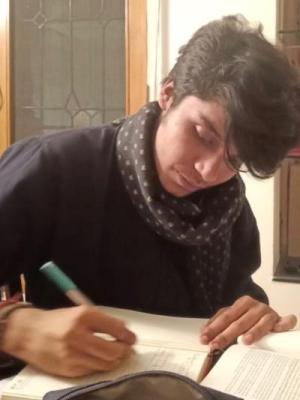You are invited to CHL PhD Candidate Easwar Anand's Confirmation of Candidature.
Time: 12pm to 2:30pm AEDT
Date: Friday, 22 November 2024
Speaker: Easwar Anand, PhD Candidate
Venue: Seminar Room E, HC Coombs Building and Online via Zoom
Meeting ID: 718 106 0142
Meeting Passcode: 928945
In February 2016, the streets of Delhi echoed with the powerful cry of ‘azadi’ (freedom), as demonstrators rallied for the release of three student leaders imprisoned by the Indian state on account of their political dissent. These incarcerated individuals identified themselves as ‘political prisoners,’ a self-designation highlighting a crucial distinction between political and ordinary prisoners. This self-proclamation signified a rejection of conventional legal definitions and the prevailing notions of justice.
Political prisoners as a term in the subcontinent was first articulated by some Indian national activists when they were imprisoned by the British. Politically incarcerated individuals during the British colonial rule asserted their identities based on ideological differences with the imperial state, contrasting themselves sharply with ordinary prisoners, who may have broadly accepted the foundations of law and justice. This dynamic raised important questions about the nature of justice and the legitimacy of state power, particularly in contexts where dissent was criminalized. The distinction between these categories of prisoners reflected broader societal tensions regarding freedom, authority, and the right to dissent.
With these issues on the horizon, the proposed research focuses on how ‘political prisoners’ became a dominant self-categorization among a class of prisoners in India under the British occupation. Easwar enters the question by looking at the legal rationale and the rule of law concept established by the British to incarcerate ‘political prisoners’ – a category itself under scrutiny. Easwar problematizes categories of ‘political’ and ‘political prisonerhood’ by analysing texts of political prisoners in the context of state debates on the deployment of the category. He studies the latter through archival data gathering and analysis. Using this dual approach within an intellectual history framework, his thesis will attempt to present a unique understanding of the political, the echoes of which may be heard even in the present in India.
Event Speakers

Easwar Anand Thampi
Easwar Anand Thampi's PhD focuses on the understanding of the political landscape in the early modern era. He completed his MPhil degree from Jawaharlal Nehru University in New Delhi, India, where his thesis examined the shaping of Malayalam publics through the study of a vernacular newspaper.
